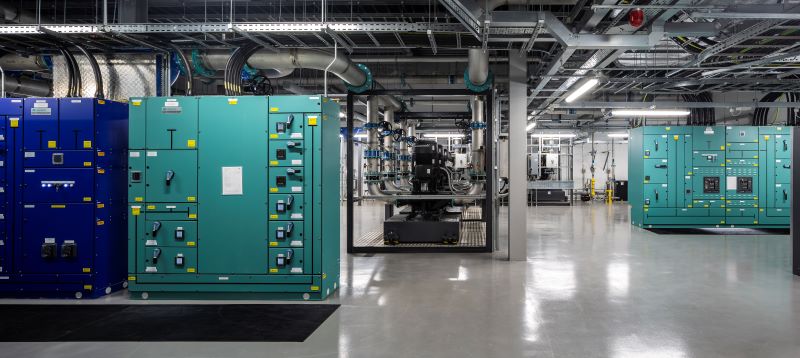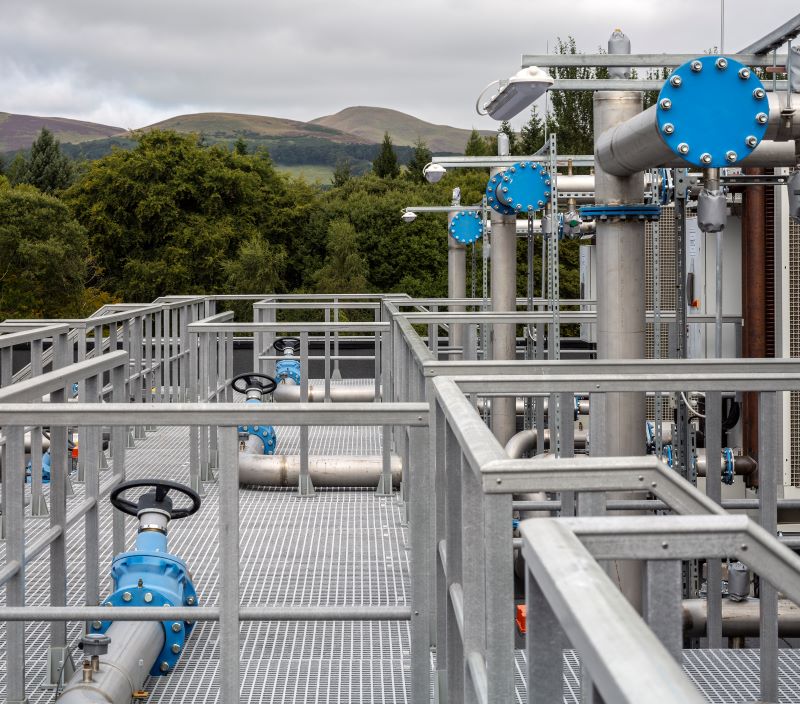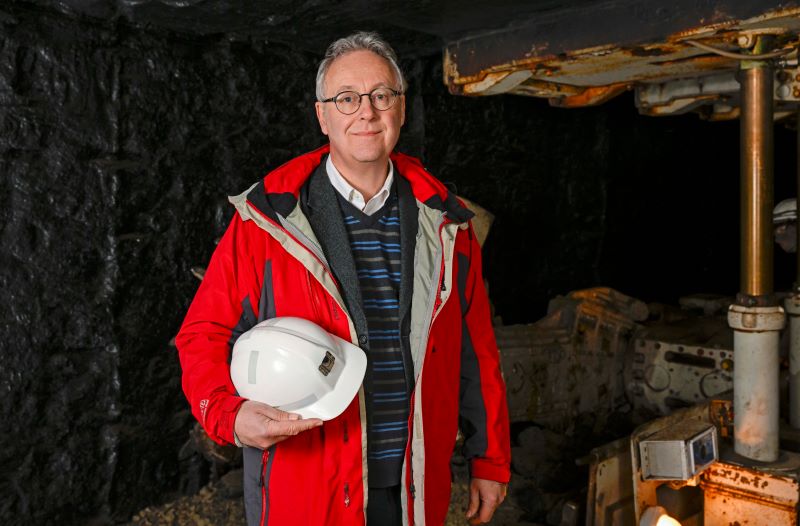A first-of-its-kind system in the UK is being trialed in Edinburgh to see if waste heat from a large computing facility can be stored in disused mine workings and used to warm homes.
The large amounts of energy needed to power the University of Edinburgh’s Advanced Computing Facility (ACF) could be recycled to heat at least 5,000 households in Scotland’s capital.
The facility, home to the national supercomputer and used for research such as national climate modeling and health data modeling, currently releases up to 70 GWh of excess heat per year.

This is projected to rise to 272GWh once the UK Government’s recently announced next-generation Exascale supercomputer is installed at the University.
The £2.6 million feasibility study will examine how the water in old mine workings near the computing facility could be harnessed to heat people’s homes.
The process of cooling the supercomputers would be augmented to transfer the captured heat into the mine water – up to a maximum temperature of 40°C – which would then be transported by natural ground water flow in the mine workings, and made available to warm people’s homes via heat pump technology.

If successful, the study could provide a global blueprint for converting abandoned flooded coal, shale and mineral mine networks into underground heat storage.
With a quarter of UK homes sitting above former mines, potentially seven million households could have their heating needs met this way, researchers say.
The Edinburgh Geobattery project – led by Edinburgh-based geothermal company TownRock Energy – is being spearheaded by industry and academic partners from Scotland, the US and Ireland.
The University of Edinburgh is the lead research partner on the project and is providing £500k of funding as part of its own net zero objectives.
Scottish Enterprise has awarded a £1 million grant to the project through the Joint Programming Platform Smart Energy Systems (JPP SES) and Geothermica – two networks that have co-funded projects developing innovative heat and cooling solutions.
A further US $1 million from the US Department of Energy will fund researchers from the Idaho National Laboratory and Lawrence Berkeley National Laboratory.
University College Dublin, whose researchers are funded by Geothermica and the Geological Survey Ireland, and the University of Strathclyde are also project partners.
Edinburgh Innovations, the University of Edinburgh’s commercialization service, will help make the research findings an investable proposition and support further funding applications.
Lead academic on the project, Professor Christopher McDermott, from the University of Edinburgh’s School of Geosciences, said: “This project opens up the potential for extracting heat stored in mine water more broadly. Most disused coalmines are flooded with water, making them ideal heat sources for heat pumps. With more than 800,000 households in Scotland in fuel poverty, bringing energy costs down in a sustainable way is critical, and using waste heat could be a game-changer.”

David Townsend, founder of TownRock Energy, said: “We are pleased to be leading this multi-national research consortium, benefitting from world- leading academic expertise. Capturing, storing and re-using waste heat is critically important to reaching net zero, and here we are learning and testing how best to do this in the ground, in legacy coal mine infrastructure.”
Suzanne Sosna, Director of Energy Transition at Scottish Enterprise, said: “This is a remarkable, collaborative project for Scottish Enterprise to support alongside international and Scottish partners from government, academia, and industry. I’ll watch with keen interest how gigabytes can turn into clean heat as the Edinburgh Geothermal project progresses. This initiative also highlights the energy transition market opportunities available for Scotland as we strive for net zero.”
Professor Sir Peter Mathieson, Principal and Vice-Chancellor of the University of Edinburgh, said: “The University’s own climate and sustainability targets mean that we need to look at a wide range of ways to address the challenges of the climate crisis. This project brings together these commitments alongside our own innovative research to find solutions to tackle climate change that deliver direct benefits to people and influence positive change locally and globally.”
For details about the Edinburgh Geobattery project, please visit: Galleries to Calories (G2C) | The University of Edinburgh
About TownRock Energy
Founded in 2013 by David Townsend, TownRock Energy Limited is an award-winning geothermal company based in Edinburgh, and is a leading specialist in all aspects of the UK’s geothermal resources. The Company’s mission is to access the abundant geothermal energy of the earth’s subsurface to provide zero-carbon, 24-hour renewable heating and cooling to industrial, commercial and domestic energy users.
About the Geothermica
Geothermica combines the financial resources and know-how of 20 geothermal energy research and innovation programme owners and managers from 16 countries and their regions.
About Joint Programming Platform Smart Energy Systems (JP SES)
The Joint Programming Platform Smart Energy Systems combines resources of national and regional funding agencies across a number of ERA-Net programmes, to support collaborative research and innovation projects with funding and access to a knowledge community and impact network.
About Scottish Enterprise
Scottish Enterprise (SE) is Scotland’s national economic development agency and a non-departmental public body of the Scottish Government. It supports businesses to innovate and scale to transform the Scottish economy by focusing on new market opportunities through targeted investment, innovation and internationalisation.
For further information, please contact: Geri Dick, Press and PR Office, geraldine.dick@ed.ac.uk
Headline image: National Mining Museum – Credit Neil Hanna





